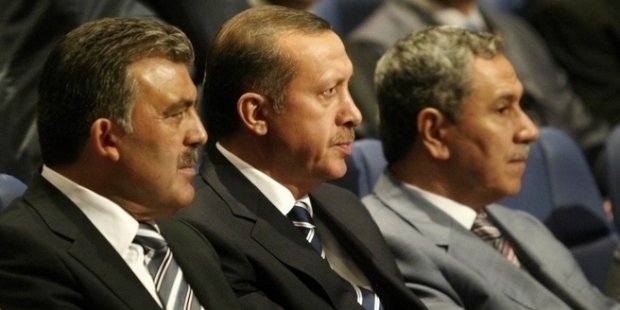Erdogan, Former President Gul Split Over Controversial Decree
Turkey’s current and former presidents publicly split over the ramifications of the latest decree that has generated lasting political controversy.
In return from his four-day Africa visit, President Recep Tayyip Erdogan hit hard his predecessor over his rebuke of one of the government decrees that gives legal protection to government loyalists for their actions to beat back the putschists on the day of the coup last year.
“It is a pity that our former president came up and talked about ambiguity. Which article did drive you to conclude about ambiguity?” the president asked, revealing his displeasure of criticism from his predecessor.
In one of the rare moments of disagreement, former President Abdullah Gul commented on the decree adopted on Sunday. He candidly warned of potentially unpleasant consequences of the legal ambivalence of the decree.
15 Temmuz hain darbe teşebbüsüne karşı arkasına bakmadan sokağa çıkıp direnen kahraman vatandaşlarımızı koruma amacıyla çıkartıldığını düşündüğüm 696 sayılı KHK’nın yazımındaki hukuk diliyle bağdaşmayan muğlaklık, hukuk devleti anlayışı açısından kaygı vericidir.
— Abdullah Gül (@cbabdullahgul) December 25, 2017
One of the decrees provides immunity from prosecution for any individual, whether they have any official task or not, for helping the government to resist “terrorists” or coup plotters aiming to topple the government.
President Gul’s tweet ruffled feathers among government circles.
“The statement made by their [excellency], and the retweets it has received, brought the matter to a very different point,” Mr. Erdogan said, referring to former party fellows who shared the former president’s tweet in a display of discontent over the controversial decrees.
Bulent Arinc, one of the founding figures of Justice and Development Party (AKP), entered the fray after retweeting Mr. Gul’s Twitter statement. His endorsement of the public criticism points to the emergence of a new schism within the party.
But how much this chasm and the public split would translate to a genuine challenge to President’s Erdogan’s ever-tightening grip over the ruling party is far from clear. Both Mr. Gul and former deputy Prime Minister Arinc were known for harboring different views on various policy matters in the past.
But they never attempted to form a new breed of intra-party opposition to lead an insurgency against Mr. Erdogan whose authority in the party has become unquestioned.
Still, Mr. Gul’s tweet produced a feverish backlash from AKP bigwigs. Senior AKP lawmaker Samil Tayyar accused him of being an opportunist and preparing for 2019 presidential elections by reaping the winds among the opposition.
“He is trying to build bridges, common ground with opponents, and widen the distance from AKP. It is futile whatever he does,” he said.
Aydin Unal, the former speechwriter of Mr. Erdogan, also slammed the former president for what he says exploiting moments of crises.
“There are some retired, veteran political figures who like tumultuous times and wait in ambush for squabbles to emerge, and who disappear when there are risks but wait for opportunities to thrust to the heart of debates to present themselves as men of conscience and wisdom,” he said in a veiled reference to Mr. Gul.
Those figures have, he argued, played into the hands of main opposition Republican People’s Party (CHP).
The former president casts a soft-spoken, moderate figure in sharp contrast to his successor, incumbent President Erdogan.
Their different personalities were on vivid display on many occasions when their views diverged. But Mr. Gul studiously avoided direct confrontation with President Erdogan, kept his criticism mild and not too sharp.
Still, even his measured criticism was enough to incur the wrath of the Erdogan loyalists who turned their fire against him. Opprobrium and taunts cut across the different factions of the party in expressing their disdain for Mr. Gul who they regard as a dangerous, stealth figure waiting for his moment to capture AKP leadership in the time of an existential crisis.
“Please stop firing Mr. Erdogan from dirty shoulders of others to seek the grace of occupying force behind the July 15 [coup] and get their applause,” Istanbul lawmaker Metin Kulunk said.
“Let us know that your line is anti-Erdoganism.”




Comments are closed.